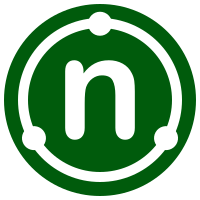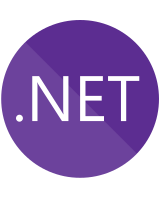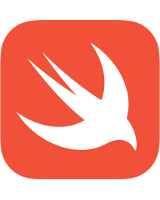Recommended roles for .NET programming interview questions and tests
- .NET Developer
- Back-End Developer
- Web Developer
- .NET Developer
- Junior .NET Developer
- Full Stack .NET Developer
- .NET Software Developer
- .NET Programmer J
- ASP.NET Developer
- .Net framework engineer
How DevSkiller .NET programming interview questions and tests work
DevSkiller .NET programming interview questions and tests are powered by the RealLifeTesting™ methodology. RealLifeTesting™ offers a unique way of challenging applicants to test their knowledge of .NET. You can determine each candidate’s coding ability, problem-solving, and time-management skills all from the initial screening stage of your recruitment process.
Caratteristiche principali
- Analyze coding skills and not just academic ability
- Risparmiate tempo e denaro con i test remoti
- The RealLifeTesting™ methodology offers a greater user experience where candidates can use their own IDE, clone to GIT, run unit tests, and access Stack Overflow/Github/Google for research.
- Stringent anti-plagiarism tools to ensure test accuracy
- Osservare i test in tempo reale
- Risultati automatizzati comprensibili anche ai reclutatori non tecnici
- .NET tests available for junior, middle, and senior-level positions
Skills covered in our .NET programming interview questions and tests
- C#
- JSON
- .NET.
- NET 5.
- NET Core
- Argomenti comuni di base
- Entity Framework
- Registrazione
- Microservices
- Parallel Programming
- RESTful Web Service
- Visual Basic .NET
- Advanced debugging
- Crittografia
- iOS Remote Debug ASP.NET on a Remote IIS Computer
- Swift
- Filtri d'azione
- ASP.NET
- Entity Framework Core
- Intestazioni HTTP
- Annotazione dei dati localizzati
- Risorse localizzate
- Registrazione
- Nozioni di base sulla sicurezza
- Cultura dell'utente
- Configurazione della pagina web
- Interfaces
- Exceptions
- Argomenti comuni di base
- Classes
- Visual Basic
- Visual Basic .NET
- Advanced memory management
- Fundamentals of memory
- Heap and stack
- Memory allocation
- BST trees
- WCF
- Threads
- design patterns
- SQLite
- Algorithms
- MVC
- Entity Framework 6
- REST
- T-SQL
- ASP.NET MVC
What to look for in a .NET developer
.NET is a software development framework created by Microsoft. It provides a controlled programming environment where software can be developed, installed, and executed, mainly on Windows-based operating systems. .NET was produced as Microsoft’s response to the rapid growth of the Java platform.
The .NET platform supports many languages including C#, Visual Basic .NET, F#, and C++ .NET. There is also an extensive amount of libraries and frameworks available to .NET developers to allow for the creation of a large variety of web applications.
Your developer candidate should know at least some of the .NET libraries and frameworks like ASP.NET, MVC, or Entity Framework. Some of the frameworks are similar, so as long as they know some they can easily learn the others.
Practical programming experience, ideally commercial, is important in a .NET developer. Unless you are looking for a junior .NET developer, then you will want your candidate to have hands-on experience with a project that used .NET technology.
.NET evolves quickly. A previous limitation of .NET was problems with porting the framework to other operating systems. The.NET Core framework, that supports Windows, Mac, and Linux, was created partly to solve this problem. The two languages are now quite similar, although one is not seen as a replacement for the other. A .NET developer should be able to get to grips with using .NET Core without too much trouble.
Want to get more from .NET programming interview questions and tests?
The DevSkiller online task wizard allows you to build your own fully customizable tests. You can set the parameters of your .NET tests to have more control over the screening process. Choose which languages you want to assess, allocate a time limit, and define the scope of your tests. You can even monitor your applicants’ in real-time. Finding your next .NET developer is simple with our .NET programming interview questions and tests.
Want proof that our .NET programming interview questions and tests work?
DevSkiller .NET programming interview questions and tests can be a vital tool when it comes to recruitment in your business. Don’t take our word for it, check out the following case study to see for yourself:
Spartez
Spartez is a Platinum Top Vendor on the Atlassian Marketplace. With focus on the Atlassian and agile ecosystem, they provide useful tools for Server and Cloud, as well as offering support to customers and evaluators.
The HR team used to recruit new developers using an in-house screening process followed by interviews. More than 23% of candidates would pass the initial test, making it difficult to know who to bring back for the next stage. More interviews than were necessary were conducted and it took 15-20 minutes to evaluate each test.
After turning to DevSkiller, the team at Spartez were able to automate testing and evaluation, saving on time. They then introduced a more thorough screening process and soon found that only 10.23% of candidates made it past the technical screening. This left only the best candidates and meant they met face-to-face with half the amount of people they used to. DevSkiller testing, like our .NET programming interview questions and tests, allowed Spartez to save time and money throughout their recruitment process.
Patrycja Kiljańska - Specialista in acquisizione di talenti presso Spartez
"Abbiamo sostituito una soluzione interna ad alta manutenzione con DevSkiller. Il nostro processo è identico, ma il prodotto ci offre prestazioni migliori. I risultati sono anche molto più facili da valutare".
Domande frequenti
Cosa si fa contro il plagio?
DevSkiller takes plagiarism very seriously. You need to be able to trust the results to our tests.
We employ a number of anti-plagiarism tools including screen recording and a range of social listening tools. We can check the candidate’s IP address, and use live pair notifications. Our plagiarism detector looks at the candidate’s entered .NET code, question duration, and the way questions are answered. Answers are automatically cross-checked against every answer in the system. If there is a match we will find it and the candidate will be eliminated.
What do candidates think of DevSkiller .NET tests?
Candidates love the structure of Devskiller .NET programming interview questions and tests. Rather than algorithm tests that don’t test their real capabilities, they have a chance to prove their actual software development skills. They appreciate being able to use normal coding tools and conventions like unit testing, and cloning to GIT from a personal IDE. They relish the opportunity to prove their skills in a fair setting.
How do candidates take a test?
DevSkiller’s .NET programming interview questions and tests are taken remotely, from anywhere in the world, at the convenience of the candidate. All a recruiter needs to do is send out the test invite. Each .NET test invite can be made available for a specified amount of time.
Candidates have the option to use DevSkiller’s own state of the art in-browser IDE, or if they’d rather they can complete the project on their favorite IDE and then clone the project to GIT. Candidates can also run unit tests to ensure their solutions are working the way they’re supposed to. Once the test is complete, or the candidate runs out of time, the test is automatically evaluated and an easy to understand report is sent to the recruiter with the results.



